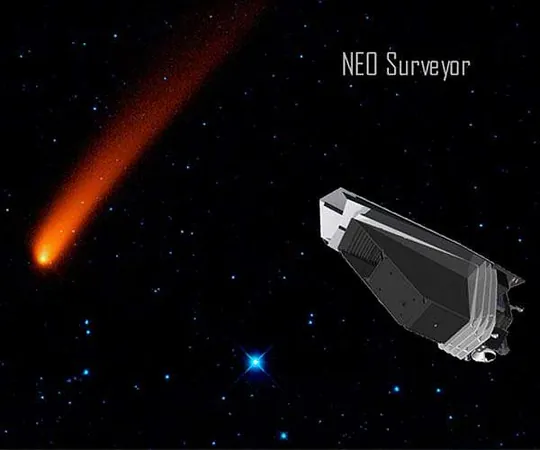
Breakthrough Cell Sorting Device Promises Early Cancer Detection!
2025-03-25
Author: Li
Introduction
In a groundbreaking development, researchers at K N Toosi University of Technology (KNTU) in Tehran have made significant strides towards detecting cancer at earlier stages by creating a device that effectively separates circulating tumor cells (CTCs) from blood! This innovative approach has the potential to revolutionize cancer diagnostics, offering hope for more timely interventions.
The Challenge
Analysing CTCs can provide vital information about cancer progression, but traditional methods for isolating these cells from blood are often cumbersome and require large sample volumes.
The Innovative Solution
The KNTU researchers propose a cutting-edge solution: using ultrasonic waves to achieve precise cell separation in a real-time, energy-efficient manner.
Researcher's Insight
Lead researcher and assistant professor of mechanical engineering, Naser Naserifar, states, “We aimed to design a user-friendly microfluidic device powered by standing acoustic waves (SAWs) that can separate CTCs from red blood cells (RBCs) efficiently.” This method promises minimal damage to live cells, a crucial aspect for subsequent analyses and treatments.
Acoustofluidic Mechanism
By employing dual pressure acoustic fields within strategically placed microchannels, the researchers have successfully isolated CTCs, allowing them to be collected for further laboratory processes. This innovative acoustofluidic mechanism utilizes small vibrations to navigate cells over short distances without harming them.
Advanced Technology Integration
What sets this device apart is the incorporation of advanced computational modeling, experimental analysis, and artificial intelligence algorithms to enhance its efficacy. This synergy enables the team to accurately predict CTC migration patterns, thus improving the precision of cancer diagnosis.
Prototype Development
During the development phase, the researchers constructed a prototype made from lithium niobate, utilizing polystyrene microspheres as stand-ins for actual blood components. Their numerical simulations and physical tests showed remarkable alignment, with a deviation of only 3.5%.
Future Implications
"This innovative lab-on-chip technology could usher in a new era of personalized medicine, enabling real-time molecular analysis right where it’s needed most,” said Afshin Kouhkord, a key contributor to the project. The researchers envision a portable device that could function efficiently in resource-limited settings—making this technology accessible to underserved populations worldwide.
Conclusion
With this promising device in the works, the implications for cancer detection and treatment are profound. Imagine a world where early-stage cancer can be identified quickly and easily, possibly saving countless lives! This research is paving the way for a future where advanced diagnostics and patient care are within reach for everyone, regardless of their geographical location.
Get Updates
Stay tuned for updates on this thrilling advancement in cancer research that could change lives!



 Brasil (PT)
Brasil (PT)
 Canada (EN)
Canada (EN)
 Chile (ES)
Chile (ES)
 Česko (CS)
Česko (CS)
 대한민국 (KO)
대한민국 (KO)
 España (ES)
España (ES)
 France (FR)
France (FR)
 Hong Kong (EN)
Hong Kong (EN)
 Italia (IT)
Italia (IT)
 日本 (JA)
日本 (JA)
 Magyarország (HU)
Magyarország (HU)
 Norge (NO)
Norge (NO)
 Polska (PL)
Polska (PL)
 Schweiz (DE)
Schweiz (DE)
 Singapore (EN)
Singapore (EN)
 Sverige (SV)
Sverige (SV)
 Suomi (FI)
Suomi (FI)
 Türkiye (TR)
Türkiye (TR)
 الإمارات العربية المتحدة (AR)
الإمارات العربية المتحدة (AR)